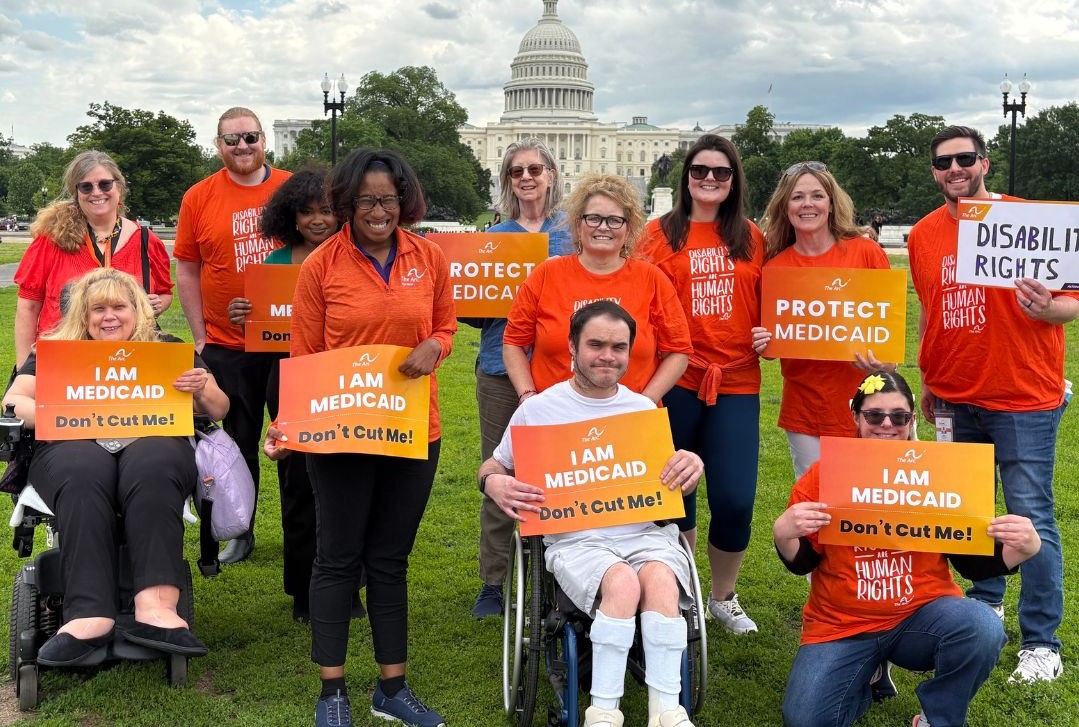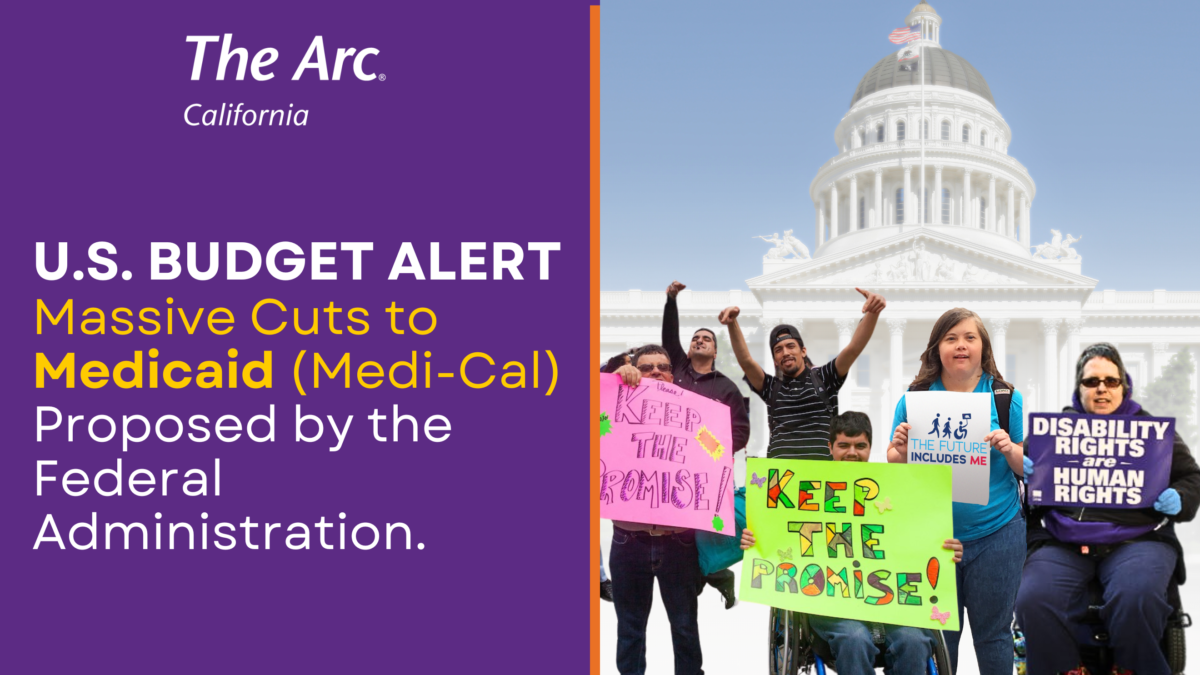Early last Thursday morning, the U.S. House of Representatives passed a budget reconciliation bill that slashes Medicaid and the Supplemental Nutrition Assistance Program (SNAP) — programs that millions of people with disabilities rely on to survive. In California, those programs include Medi-Cal, regional center services, In-Home Supportive Services (IHSS), early intervention services, school therapies, home health, Cal-Fresh food assistance, and much more.
The vote was along party lines with the exception of two Republicans, Representatives Warren Davidson of Ohio and Thomas Massie of Kentucky, who voted against the bill. Representative Andy Harris of Maryland, chairman of the Freedom Caucus, voted “present,” a protest vote. Despite massive efforts by advocates in California, not a single Republican in our state voted against the cuts, including Representative David Valadao (Bakersfield) who’s district has the most constituents on Medicaid (Medi-Cal) of any district in the country – by far.
The Arc of California urges the U.S. Senate to reject the Medicaid and SNAP cuts in the House passed bill that includes the following policies:
- $715 billion in cuts to Medicaid that threaten access to health care and essential services. These cuts will impact all people covered by the Medicaid program, including people with disabilities, children, and older adults.
- Combined with restrictions on Affordable Care Act marketplaces and the expiration of enhanced premium tax credits, these policies could result in 13.7 million people losing health insurance.
- New administrative barriers that require people with coverage through Medicaid expansion will have to renew their eligibility two times a year, instead of once, which will increase the risk that people with disabilities will incorrectly lose coverage.
- $300 billion in cuts to SNAP, a nearly 30% reduction is the largest cut in the program’s history to critical food assistance.
- New strict work requirements that are designed to reduce enrollment. Nearly 70% of Medicaid beneficiaries are working. A last-minute change to the bill speeds up the implementation of the work requirements.
The Arc will continue to educate every member of Congress on the life-and-death consequences of these cuts—and the need to protect Medicaid and SNAP.
What’s Next and Action Needed:
The bill now moves to the U.S. Senate where changes could be made – this is not over. The Senate is also planning to move quickly to develop their package of amendments. Members of Congress will be out on congressional recess all this week. The time is NOW to reach out to them and tell your story. We can’t stop now! The Arc’s summary of the House bill can be found here.


